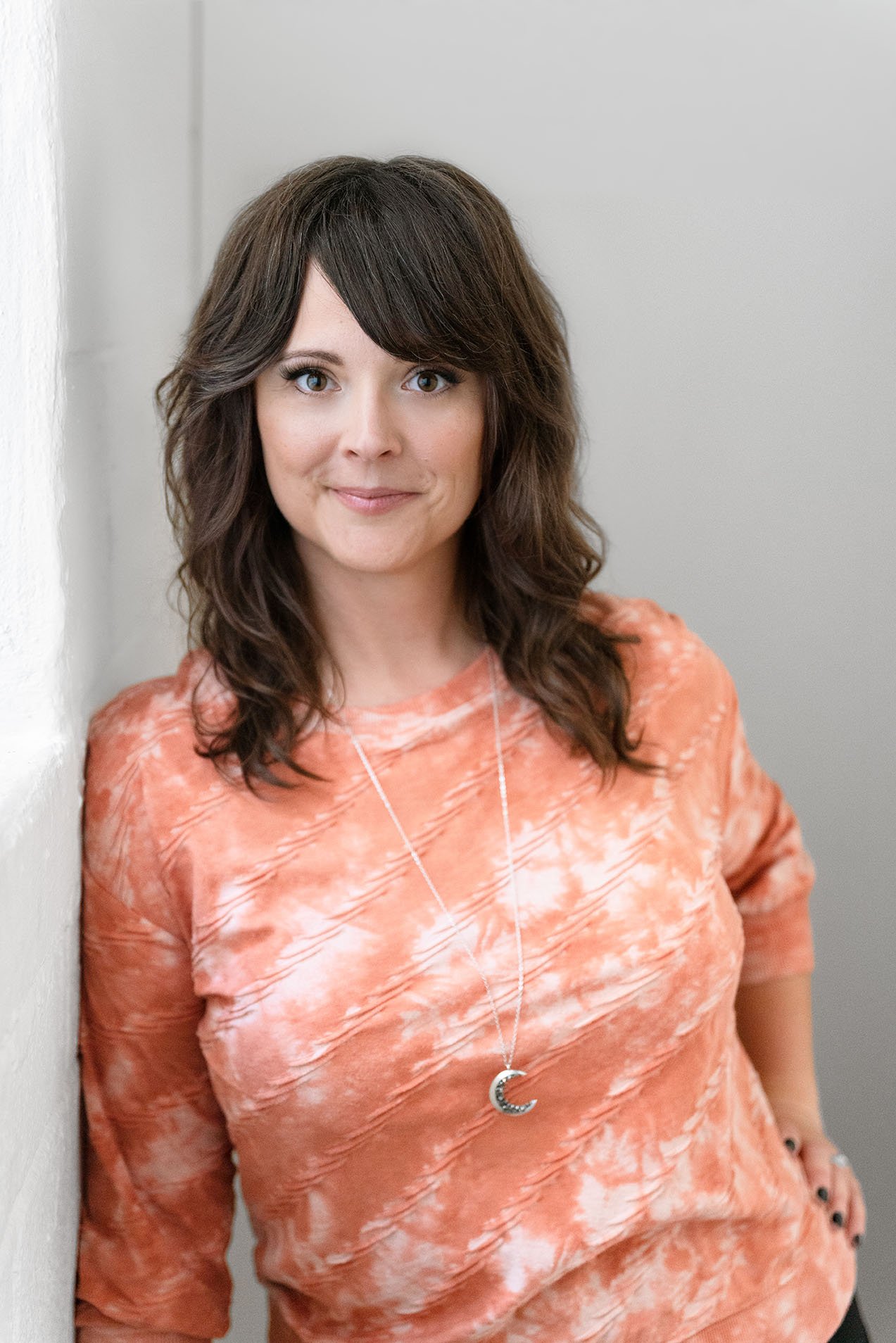Keep Moving Forward with Trauma-Informed Life Coaching
I offer two different focuses in my one-on-one coaching programs. This is a description of what a trauma-informed life coaching focus with me is to help you make a decision about the best focus for you.
Here’s what we’ll go over in this article:
Meeting Goals with Trauma-Informed Life Coaching
My trauma-informed life coaching one-on-one programs are thoughtfully designed to move you out of a place of stuck, stressed, and making the same mistakes to a place of empowered awareness and alignment, living a life based on who you really are and what truly makes you happy.
Trauma-informed life coaching with me is designed to help you meet specific, tangible goals. They can literally be any goal you have, such as setting and sticking to a budget, eating healthier, exercising more (or at all), having a better sex life, parenting more gently, or even getting recognition at work. It could be anything.
However, because you’ve had a traumatic childhood, there may be complexities from your past keeping you stuck and we work to resolve and heal those to move you forward toward your tangible, life goals. In other words, the goals are the primary drivers in our sessions, but healing may come up as a side effect of working toward your goals.
In any case, the trauma-informed life coaching focus is best for you if you’re at a place in life where you’re mostly resourceful when it comes to coping, can tolerate big emotions pretty well, and can self soothe when you’re evoked.
Whereas, if you choose a trauma recovery focus with me, the goal IS to heal and therefore regulate and learn to self soothe, among other things.
Side Note: If you choose this focus and we get into a couple session and realize you’d do better with a trauma recovery focus or a hybrid approach, no worries at all. We can change course as needed. You’re not locked into a focus.
Since this article is all about trauma-informed life coaching though, let’s break down what it all means.
The Difference Between Life Coaching and Trauma-Informed Life Coaching
Life coaching is a non-judgmental relationship where I hold space for you to gain self awareness and find the answers within to accomplish your goals and keep moving forward in your life, especially in areas you may be stuck or keep repeating patterns that aren’t working for you.
Trauma-informed life coaching is that same relationship but through the lens of knowing how trauma impacts your holistic human experience, health, and wellbeing.
Trauma-informed life coaching has a lot in common with everyday life coaching. But, there are a couple of key differences between the two that are important to consider when you’re selecting a life coach.
You Might Also Want to Read: How to Find a Life Coach Who’s the Best Fit for You
Particularly, if the behaviors or circumstances you want to change in your life seem to be perpetuated by past trauma (or current trauma), your coach will need to have an in depth understanding of trauma and trauma responses to be able to hold appropriate space for you and help you set goals to move forward that won’t overwhelm or send signals of danger throughout your mind, body, and spirit. Reconnecting to your values to set aligned goals can also be more challenging as a trauma survivor, and a trauma-informed approach can help you reconnect within the context of where you are in your healing journey.
This is not to say that general life coaching is not helpful — it’s extremely helpful and life changing. I know several general life coaches I can gladly refer you to if you’re more interested in that route of coaching. But, if you have complex trauma in your past, you may want to explore what trauma-informed life coaching can do for you and if it’s a better fit for you.
Tons of people with past trauma go to regular life coaching — I’m one of those people who have benefited greatly from life coaching, even though it wasn’t trauma informed and even though I’ve had plenty of complex trauma in my own story.
However, now that I’m certified as a trauma-informed coach, I can see how an understanding of trauma may have helped my wonderful past coaches more gently approach a goal or how I was coping. They may have been able to recognize when I was evoked (a.k.a. triggered) and have slowed pace and switched into a regulating exercise, for example.
It’s also good to note that general life coaches typically won’t touch trauma. It’s traditionally a topic that’s been reserved for therapy.
I say “traditionally,” because trauma-informed coaches are fairly new to the scene, but we’re here to stay.
Also, those of us who are trauma-informed have typically healed from some form of complex trauma ourselves and know what its like to experience things like:
Feeling like your body is trying to kill you - a.k.a. brain fog, chronic pain, chronic stress and anxiety, gut issues
Not being able to do as much as you used to
Feeling exhausted all the time
Experiencing overwhelming shame and guilt
Being disconnected from our true selves due to dissociation and other forms of coping
Existing in survival mode
Inability to trust and form healthy relationships
And so much more….
So I can empathize and show compassion for your experiences based on my own knowledge of what it’s like to go through what you might be going through. Of course, I won’t have experienced it the exact same way you have or are, but I can confidently say, you aren’t alone and healing AND productivity is possible.
What Trauma-Informed Coaching Is Not
Do note that trauma-informed life coaching isn’t a substitute for therapy. If you’d like to know more about the differences between coaching and therapy, check my FAQ section here. (Once you click, just scroll down till you see it.)
Myself and other legit trauma-informed coaches don’t diagnose or prescribe. We don’t treat mental illnesses. However, we do hold space for how you need to show up based on our knowledge of trauma, whether you have a diagnosis or not.
What It Means to Hold Space
Holding space for someone is a great way to support healing and/or progress. Holding space is a primary function of my job as a coach.
You are not broken, no matter what you’ve been through. You are not broken even if you keep making the same mistake. You are not broken. Period.
You’re allowed to feel what you’re feeling and for your experiences to be valid, even if they’re vastly different than mine or someone who you care about.
In fact, when you’ve been through trauma, even though you may feel broken, your mind, body, and spirit are actually doing exactly what they’re supposed to do to protect you. (That was a huge revelation for me when I first started my own healing journey. It may be a huge revelation for you too, and if you don’t believe it yet, know that you can get there.)
Holding space simply means to allow feelings and being without judgement. It really just means being respectful of and present with you. If you’re the one who needs to hold space for yourself, the same definition applies. Respect yourself and allow your own reality without judgement of it.
Holding space doesn’t mean not having boundaries — in fact, holding space requires the ability to set and maintain healthy boundaries. Boundaries is a huge topic for another day, but know this:
A structured space (of your choosing) is necessary to create the life you want. Creation, which is exactly what my clients and I do together, seems like an unstructured activity because creativity is oftentimes the opposite of reasonable or logical. However, without a boundary around the act of creation, it becomes overwhelming. Once you create at one level, you can move the boundary — increase the radius of it or sides of it (depending on what shape you see it as) — and create at an even higher level. The amount of levels you can create at are endless. The boundaries enable that to be so.
In trauma-informed life coaching, your creation of the life you want oftentimes happens in parallel with your healing process.
When I’m holding space and structure for you to do that, it becomes accelerated.
How Trauma-Informed Coaching Moves You Forward
Goal setting is a huge part of moving you forward. We set intentions, identify what you want, and focus on what’s most useful to you in getting there. Then we explore what all that means, and this can be really fun and imaginative. It’s very self reflective. Then you decide what you want to do with the information you uncover. As your coach, I help you make sure what you decide to do is aligned with your overall desired outcome and what makes you feel whole — your big picture dream or result you want to get from being coached.
As we meet regularly, you can tell me about how you completed or worked toward your action step that you identified, which provides a level of accountability. However, if you don’t make progress one week, for example, that’s okay — don’t feel embarrassed or like a failure. We can talk about that too, and that’s all part of figuring out how to move forward in a way that works for you. Especially with a history of past trauma, this is normal. If you start feeling evoked or overwhelmed, or some kind of way, as you work toward your goals but perhaps don’t crush it one week (even if you’ve crushed the last five), we’ll want to explore that and figure out what’s really coming up for you. We’ll dig as deep as you want to go to get to the root.
On the other hand, you might come into a session setting a goal already knowing what will come up for you, because you’ve experienced it time and time again. We’ll face it, together, when you’re ready.
And if you’re really far along in your healing journey, all you might need is the exploration and accountability and you’ll crush most of your goals.
Either way, trust that you’re making progress.
I’ve been saying “moving forward” as a way to describe what will happen during trauma-informed life coaching. That’s because moving forward is a way to represent releasing your past, living in the present, and creating a better future. But, it’s important to note that healing isn’t linear. It’s cyclical. So, feeling like you took a step back sometimes doesn’t mean you’re not making progress.
How Working Toward Your Goals Can Bring Up Ingrained Trauma
Everything I just described can feel a bit conceptual. So let’s explore an example of what I’m talking about that could potentially happen.
Let's say you have an overarching goal of donating 10% of your income to charity this year. So, we talk through your budget and what could hinder or support you in making that happen. You identify that your first step to being able to freely donate 10% of your income is to get a raise at work. In order to get a raise at work, you’ve been working really hard and getting a lot of recognition. But the raise hasn’t come. You want to get up the courage to ask your boss for the raise. By the end of our session, you decide you want to have that talk with your boss by the next time we meet. We might even role play or plan out how that talk would go, if that’s what you need.
In some cases, a client will crush it and we’ll celebrate that win and move on to the next piece. But let’s say in this case, you had the meeting set and then just couldn’t bring yourself to have the conversation. You notice that as you think about going in for the talk, you start to tense up and your breathing changes. Perhaps your heart starts beating harder in your chest. Maybe you even feel a little tightness in your throat.
In our next session, I wouldn’t be mad at you for not meeting your goal! I wouldn’t berate you or shame you. I’d be so proud of you for recognizing what you were feeling and then I’d ask you questions around it.
In this example, what you noticed was something being evoked in you. And noticing that is the first step to changing your reaction to it. So I’d want to know where that feeling comes from, and it might take a while to figure it out. What fear is there?
In our exploration, you might learn that as a child, anytime you asked for something you needed, it was denied or met with being shamed for needing something. And perhaps you adapted to that by making yourself invisible: need less so I don’t have to ask for more.
And then we’d start to look at how that benefited or hurt you. What strengths did you have that helped you adapt in that situation? How do you want to apply those strengths in this present moment? What do you want to let go of? What do you need to cope and ease the fear of that happening again?
Then we might identify that being seen and heard is really important to you and when you’re not seen and heard, you feel small. And knowing that allows you to make yourself bigger. So instead of the next action step being going to talk to your boss, we’ll have just uncovered other steps that actually need to happen before that one. Perhaps you start practicing by speaking up in the next meeting or asking your friend to do something you want to do instead of just going along with their plans. And after you feel confident in exercising your voice, maybe then it’s time to try again at the raise conversation with your boss.
You see — whatever happens is simply information we can work with, and that’s okay. Eventually, you end up talking to your boss, getting the raise, and you healed (at least part) of that neglect or rejection wound and let go of old ways that weren’t serving you in the process.
That’s huge growth.
This is only one example, but there are an endless amount of scenarios like this one that could occur in all life areas.
Healing while working toward goals does take time though. It’s important to honor your timeline and not force productivity for the sake of productivity or “moving forward.”
The Importance of Taking the Time to Heal as Part of Goal Work
As just illustrated, oftentimes, those old, unrecognized or secret wounds can hold you back from achieving your goals. Uncovering them and then simply taking the time to think about and talk about wounds or injuries that you’ve not really paid much attention to before can be cathartic and freeing. This helps you create room for the new within you and within your life.
But also, recognizing the strengths you had around those wounds and how you got through them can give you insight into how you can move forward. You can rely on those strengths to change what you want to change.
The healing comes with awareness, processing, and then integrating what you learned. When you’re able to integrate what you learn into your life, that naturally propels you forward.
Combined with the intention to move and make changes, the forward motion happens even faster. Now, don’t get me wrong, it does take time. But with these ingredients, you’ll feel the momentum, even knowing that healing is cyclical and not linear (three steps forward and then two steps back, for example, still equals one step forward, which is great progress and that’s normal.)
With all that in mind, here are a few of the things that could come up as part of the healing process while you’re working toward your goals:
Forgiveness of yourself and others. You may not even know you need this at first.
Releasing what doesn’t work for you (including relationships, habits, jobs, anything…)
Grief - with release comes grief, but in processing your grief, you also recognize the complexities of human emotion and that you’re capable of holding opposing emotions at once, and this can be really expanding and powerful.
Taking action oftentimes helps channel emotions — taking action toward what you want and getting away from something that’s hurting you actually helps you stop future trauma within yourself and even others around you. It can provide hope because it relieves any helplessness you may feel.
Aligned actions help relieve anxiety and break old patterns — by reconnecting with and loving yourself fully, you start to align more with what you really believe and value. This can reduce anxiety and the feeling of being stuck or numb, even. Aligned actions are even more potent than regular ol’ actions when it comes to feeling empowered.
Other things can come up as part of healing too.
While that may feel like a setback to your goals, know that just as rest is essential for increased capacity to be productive, healing is essential in being able to move forward in life.
It’s okay to slow down sometimes in order to speed up later.
Questions or Comments?
Feel free to let me know if you have any questions in the comments, or you can schedule a free consultation.
Related Posts
Hey there!
I’m Brandi Fleck, TICC. I’m a private practice, certified trauma-informed life coach and trauma recovery coach. All genders, sexualities, and races are welcome here. I primarily serve clients via one-on-one coaching and self-paced trauma education.
Find More on the Blog
Recent Posts

































